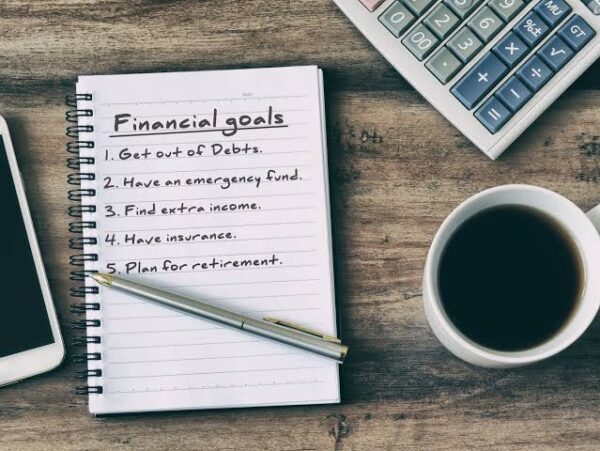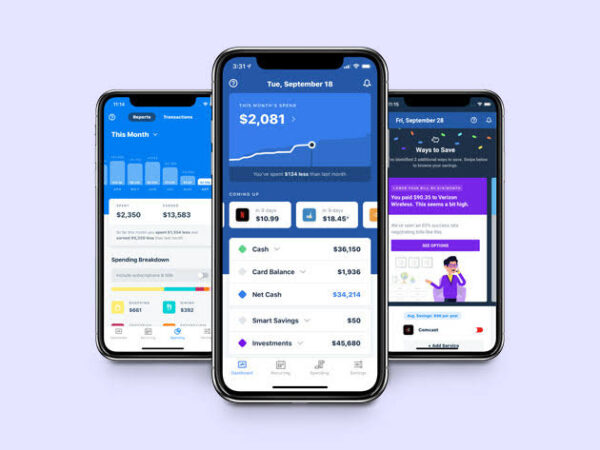Last updated Feb. 19, 2023 by Peter Jakes
It’s one thing to sit down and make a budget once, which we know isn’t the most fun thing to do. It’s another thing to sit down every week or month and keep that budget up to date. As with exercise, you may feel great when you’re done, but it can be a drag to do. That’s where the 21 Ways To Make Budgeting Fun comes in.
With all of this in mind, one way to get out of that system is to make a budget. Even though financial advisors like me use the word “budget” like it’s a human GIF, the word doesn’t exactly scream “good times,” does it? However, it turns out that some hidden tricks can make budgeting fun.
Let’s be honest: nobody likes the word “budgeting” unless, of course, you’re a young accountant or financial planner. There’s nothing more boring than making a budget for everyone else. But the thing is, it’s one of those stressful jobs that you have to do if you want to keep track of your money and make sure you have enough money for your next night out.
Understanding budgeting
Budgeting in the traditional sense is not enjoyable. Most people must create a horror spreadsheet of all their fixed costs before estimating how much they “should” spend on food, shopping, travel, Uber/Lyft, etc. You tell yourself you’ll only spend $200 on food for a month and keep track of everything you buy (or maybe you get fancy and plug everything into Mint).
However, you’ve spent $257 more than you should have by the end of the month, making you feel like a failure. So you realize you’re not very good at budgeting and give up.

Perhaps you employ a simple budgeting system such as the 50/30/20 rule, which states that 50% of your expenditure should go to needs, 30% to wants, and 20% to savings.
Doesn’t it sound reasonably good? But everyone who lives in a metropolis, particularly in New York and San Francisco, is laughing so hard that they can’t cry right now because they just signed a new lease for their apartment that costs one entire paycheck. You fail before you even begin.
There Are No Rules To Budgeting
There are no rules of thumb or magic formulas for budgeting. This may sound scary or frustrating initially since we all want to know if we’re doing it “right.” But here’s what makes it exciting: if there aren’t any rules, there’s no way to fail. It’s impossible to be wrong.
Related: 11 Great Ways to Save Money Without a Bank Account
Budgets are personal. Your budget should reflect your values, not those of anyone else. The idea that where you spend your money shows what you value is one of the best pieces of advice I’ve ever heard. It can be hard to stop if you don’t know why you’re buying the things.
Budgeting is also a way to see if you’re going in the right direction or if you need to make a change—one of the first things you can do to help your budget isn’t spreadsheets or transactions.
The Urgent/Important Spending Matrix lets you think about your spending based on what matters to you, not on a bunch of “shoulds.”
21 Ways To Make Budgeting Fun
Here below are 21 apps for budgeting.
1. Just Make It Easy And Simple
The easier and simpler something is, the more fun it will be, and it won’t take long to do. The same applies when creating a budget, whether weekly or monthly. You also avoid stress for sure.
To make it fun, you can start by creating a particular schedule for budgeting. Of course, the time must be the same, for example, every 1st or on payday.
Then, to make it easy, there is no need for super detailed budgeting, with more than 100 categories of needs, for example. Later you can feel overwhelmed when you have to stick to the budget. You can start with 15 – 20 varieties of needs. Choose a number that suits you; no need to follow other people’s needs and budget categories.
2. Get Crafty With Debt Charts

Getting crafty with debt chats is one of the fun ways to budget. You’ll get a balance update on the next billing cycle when you’re paying off debt. But it’s still hard to understand how much you pay each month and how far you’ve come in paying off your debt. These debts can be enervating.
Turning your debt into an interactive chart is a fun and easy fix. Create a debt chart using arts and crafts supplies or your favorite editing software.
Make a chart for each bill you’re paying down, or make one big chart to show all your bills. Fill in your progress with each payment to see how far you still have to go until your debt is paid off.
3. Use A Visual Progress Tracker And Break Out the Monopoly Set
Having fake money in front of you will make your real money seem more natural since we don’t deal with hard cash as much as we used to.
One of the best ways to make budgeting fun is to have a picture of how your money is going.
When you can see your progress right before you, it’s much easier (and more satisfying) to keep going with your budget.
Getting out a game of Monopoly is a fun and hands-on way to budget. Use the visual tracker to represent your current income and the properties to describe your bills and other financial goals you want to include in your budget. This makes it easier to see where your money is going and where you are falling short.

You can do this in a lot of different ways. For example, you can make a “color-in” progress tracker that you color in every time you put money into your savings account. Or, you could make a spreadsheet with a line graph or pie chart that shows your progress.
No matter what method you choose, you must ensure it’s something you’ll use and see daily.
Related: 65 Clever Money Hacks That Will Save You Hundreds of dollars
4. Focus on Your Financial Goals, Not Just Dollar Amounts
Take the time to make a list of financial goals you want to achieve, both short and long-term. For example, do you want to travel to Europe one day? Do you want to pursue higher education? What about retirement savings and emergency savings?
After that, you can set a budget for each goal. When there is something you want to achieve, you will look at budgeting differently. You become excited and enthusiastic when preparing a budget. After all, budgeting is simply about deciding how you will use your money.
Having fun while budgeting is about controlling your money. For example, maybe you want to free up cash to take a vacation or buy a new pair of shoes. You can more easily achieve whatever you want when you connect your budget to your goals.

That in itself makes budgeting more fun. No one likes to do something just because they should. Budgeting will come much easier when it becomes something you want to do because there’s something valuable in it.
So, think about the reasons why you want to budget. Are you trying to free up funds for something specific? Do you want a little extra financial security? Are you saving for long-term goals or trying to get out of debt?
You might even get a picture of your end goal, such as the place you’d like to travel to and post it somewhere where it will always be top of mind. Then, you’ll see that end goal every day and can watch your finances more closely to reach that goal.
5. Consider The 52-Week Challenge
“The 52-week challenge motivates you to make periodic deposits to your savings account for a particular time.
Here is how 52-Week Challenge works for Fun Budgeting:
- Put $1 in your savings account in Week 1 of the challenge.
- Put $2 into your savings account in Week 2.
- Continue to add a dollar each week until you reach the 52nd week, when you will add $52.
You’ll save $1,378 at the end of the 52-week challenge. Not a bad method to put money toward a holiday or emergency fund.”
6. Give Yourself A Reward

Sticking to the budget takes consistency and discipline; if you can do it, that’s a big deal. So, there’s nothing wrong with giving yourself a reward when this happens since giving yourself rewards for reaching budget milestones makes budgeting more fun.
It doesn’t have to be a lot of money. For example, you could treat yourself to a spa or a fancy restaurant before making your next budget.
For example, you could add $50 to your fun money every time you stick to your monthly budget. Or, you could take a weekend trip for every $5,000 you saved or invested.
Not everything has to be complicated. The key is to develop a reward system that works for you and keeps you going.
But what if you can’t stay within your budget? You don’t have to be mean to yourself because that could make you stop budgeting. Most importantly, you figure out what went wrong and try to fix it so you can get closer to your financial goals.
Read also, How to Save $10,000 in a Year
7. Make Budgeting Fun by Getting Competitive

If you really want to make budgeting fun, try competing against a friend. Also, if you’re tired of living paycheck to paycheck, one idea is to talk to your friends and find out who else needs a budget, like, yesterday.
Get together with those friends and see who can spend the least money next month. The winner gets to brag, and the losers have to buy a small trophy for the winner. Of course, the best award would be something you can eat, like a milkshake.
You can make weekly or monthly budget challenges and compete with a budget buddy, your spouse, or even a group of friends.
“For instance, compete to see who can save the most money in 30 days,” said Woodard. “Or try a “14-day no eating out” challenge to see who can keep it up.
You can make budgeting fun by coming up with different kinds of competitions. The thrill of beating a friend is a great way to keep yourself on track with your money goals and hold yourself accountable. Plus, if you win, you get to brag about it, and who doesn’t like that?
8. Save Up for Something the Family Wants
You can make budgeting fun for your kids or other family members who don’t want to do it by saving money for something exciting.
It could be a family vacation, like an RV trip to the national parks or a trip to Disney, or a family purchase, like a pool or something else the whole family needs and wants.
9. Use an Application That Can Help you Budget More Easily and Practically

Creating a budget by hand takes more time than using an app. You must figure out the budget, keep track of everything, etc. At some point, you’ll realize it’s not very fun.
How to make making a budget more fun? First, you can use a personal finance software. With a budget planner, it’s easy to divide your needs into different groups. A good budget planner lets you set up as many budgeting categories for saving money and spending money as you want.
Then, you can move the budget from the Main savings category to any Saving and Spending categories you’ve created. After that, when you start to use the budget, you can keep an eye on it in real-time.
Get a budgeting planner and app with a spending analysis feature. You can also compare expenses between months in terms of percentages. Having an easy-to-understand planner makes budgeting more fun. This way, you can keep an eye on your money anytime. Isn’t it great?
Related: How to Make a Personal Budget in 6 Easy Steps
10. Give Your Money Funny Nicknames.
This one discovery will change everything you know about money. Finally, you can give your bank accounts nicknames like pets.
Not only does giving your accounts names like “Window shopping Savings,” “Adulting Dollaz Only,” and “Jenny’s Banana Stand” help you keep track of your money. However, such names also make you feel more connected to it because you named each account after a part of your life. It’s fun to open my bank account because of this and have them pop up, and it makes me smile.

You can use a Sharpie to write what it is for on the back of your debit and credit cards. When I look at my bills-only card and see, “Hey. Bills Only,” I don’t spend my rent money on Prime Day. On the other hand, pulling out my “I’m going shopping” card is a great way to start a conversation with a stranger at a bar.
And an extra? I love it when my bank’s customer service tells me things like, “Mr. Jake, are we putting this check in your, uh, Ratchetry Account?” Then, all of a sudden, banking is funny.
11. Create a Bae Day for Your Budgeting
Put Bae Day on your Google Calendar because it’s about to become your new favorite event. You’ll open your bank accounts and move your money around during this hour to have enough for the next two weeks.
Why Bae? Before anything else is what “Bae” stands for. Ideally, this appointment will be on the same day you get paid, so you can start this ritual Before Anything Else happens to your money. You can call it BFF day.
Making your money your “Best of Friends” will make it more acceptable to you and more fun to work with.

Plan a Bae Day for yourself once every two weeks for at least an hour. Protect this time like a doctor’s appointment, and ensure it’s early in the week, so you’re not too busy with work and tempted to skip out.
Here is the natural way to keep your Bae Day:
Think about the most fun and self-care-y things you never have time for. Do you wish you had time for a charcoal mask once a week or a Hamilton dance party without pants? Now is the time.
Make sure you do that thing before, during, or after you work on your budget. It’s all about tricking your brain. Even if you don’t like budgeting at first, you’ll start to look forward to this time as a form of self-care (and money care is self-care!).
Don’t miss this: Survey: Half of Americans Don’t Have $250 to Spare (And Why You Should Learn to Save)
12. Date a Money Mate And Make it Sexy

One of the essential parts of making a new habit stick is ensuring you have someone to keep you from giving in to temptations. So, to make budgeting more fun, you need to find a Money Mate.
Your Money Mate is the person who will keep you on track with your money, and you can decide how the relationship works. For example, you can agree to give each other a 5-minute call before each Bae Day to make sure you’re going to do it. You can also decide to be each other’s emergency-text contact when you’re tempted to buy everything in your Amazon cart.
Your Budget Money Mate needs to meet two essential requirements:
They shouldn’t be too close to you and should have similar financial goals to you. For example, you might be working full-time but cutting costs to pay off student loans.
Paypant.com recommends that if your money mate is your partner, you should try to meet once a week to talk about their budget.
Make budgeting fun by getting your favorite drink and snack, turning off all distractions if you can, and keeping the mood upbeat. Don’t pick apart each other’s purchases; instead, focus on what you both like. Finally, celebrate each other, so you both feel good about money and budgeting. It will help you both stay on track.
If you make a mistake, your best friend or a family member might be too forgiving, so look for friends who aren’t too close. You want to be close enough to someone that you can be friends with them but far enough away to feel a little pressure to keep it together.
Why It’s Fun to Make a Budget with Your Partner.
Fighting with your partner is the least minor fun thing you can do. But, unfortunately, that’s how many meetings about the budget begin and end.
Talk to your partner about the goal you want to reach. Why are you making a plan? Why does it matter? Want to save money for a trip? Do you want to stop owing money? You want to buy a home, right? If you both know and agree on the big picture, you’ll start to get excited at your budgeting meetings when you see how close you are reaching your goal.
See 40+ stay-at-home date ideas if you are on a Budget.
13. Keep Budgeting Simple to Make fun
When it comes to money matters, we tend to make everything more complicated than it needs to be. Complexity can be incredible, but it can be a curse when making a budget. Keeping your budget simple and easy will make your weekly or monthly budget meetings less stressful. Budgeting should
- Less stressful
- It takes less time to complete.
- More time for fun stuff
- Happy dance.
How Do You Make Budgeting Fun and Easy? Here are Some Fun Budgeting Tips:
● Set up a plan for when you will do “budgeting stuff.”
Every week or month, it should be the same day and time. For example, if you are making a budget with your partner, put it on both calendars.
● Organize yourself
Make a folder on your computer for all of your files about budgeting. Make links or bookmarks in your web browser to quickly get to budgeting software, banks, credit card sites, and loan sites. If you like to write things down, make a budget binder.
● Keep it simple
If you can’t handle budgeting for more than 100 categories, limit yourself to 10 or 15. Budgeting is not always better when there are more details.
● Do what makes you happy
Don’t try to make a budget like someone else’s. It’s more fun when you are in the driving seat of your budgeting.
● Make budgeting predictable
The easier your budget will be, the less you’ll have to change each month. Try to make as few changes as possible to your budget each month.
14. Change Your Budgeting Mindset
If you go to a party expecting a bad time, that’s probably what you’ll get. The same goes for budgeting. If you think making a budget will be a horrible, unpleasant task that will leave you with no money to spend, you are thinking wrong.
By making a budget, you take charge of your money. With a budget, you can take the vacation you’ve been saving for, buy gifts for people you care about, buy that dress you’ve been eyeing, or even make extra payments on your debt to get closer to your goal of being debt-free.
Think of your budget and your budgeting meeting as a chance to get your life and money under control. Create a budget based on your goals, dreams, and values. Having a plan will get you there faster.
Read also: 17 Simple Steps to Save $10,000 in a Year
15. Gamify Your Budget

Gamification is all around us. Web3 is a game; you should use it to make your budgeting fun. Budget gamification is when you try to make a task or goal into games that can make you money by trying to get points or raise your score to reach specific goals.
You can turn budgeting into a game to make it more fun. For example, you could set small monthly goals, like not spending more than a certain amount on takeout or putting at least $500 into savings. Then, you might give yourself a small treat, like your favorite chocolate bar, when you reach those goals. Small accomplishments can help you achieve big goals and get big rewards.
Make your budgeting fun with The 100 Envelope Challenge
The 100 Envelope Challenge turns saving money into a lottery game where you always win. The game’s rules are easy to understand:
- Put together 100 envelopes on each one, and write a number from 1 to 100.
- Shuffling the envelopes and putting them in a bag or a basket is a good idea.
- Draw an envelope from the bag every day for the next 100 days.
- When you pull out an envelope, the number on it tells you how much money to put. So, for example, if you draw the number 26, you put $26 in that envelope.
- The fantastic thing about this challenge is that you are sure to have saved $5,050 after 100 days. What could be better than that?
16. Stop Punishing Your Budgeting Mistakes and Embrace Imperfection
Perfectionism is the enemy of budgeting and just about everything else in life. Nothing is ever just right. Even more so, when money is involved, we want to become friends with money.
Being too hard on yourself isn’t cool and doesn’t make budgeting fun. So stop being hard on yourself whenever you make a small budget mistake or miscalculate. Instead, fix it, and try to get closer to your goal next month.
Allow Enough time for your budget to work.
One of the hardest things about making a budget is that you might not see good results for a few months.
Because of this, many people just starting to budget feel too overwhelmed and give up before their budget has enough time to work. And if that’s the only time you’ve ever had to make a budget, it’s easy to think of it as a bad thing.
Because of this, if you want budgeting to be more fun, you need to do it for a long time. But, of course, we mean “for the rest of your life” when we say “a long time.”
You’ll improve over time, and your money will improve significantly. And it will be a lot more fun when your budget starts working out well. But, on the other hand, budgeting should not be heavy-duty, so don’t make it one.
17. Join a Community

Isn’t it true that everything is more fun with friends? For example, join a Facebook budgeting group or get friends to talk about money. With the help of a few friends, a task that would typically be boring can become fun.
Is it a good idea to involve acquaintances, family, or friends?
Absolutely! Having your friends or family help you make a budget will make it easier in the long run because they will hold you accountable.
Start by sitting with your partner, discussing your finances and what you each want to do with your money. Be honest about what you want, but try understanding what your partner wants.
If you involve your kids, once you’ve agreed, make it a game to get the kids on board. For example, giving a prize to the child who saves the most weekly money is a great way to get them interested and teach them good money habits simultaneously.
If you think your close family might be too easy on you if you make a mistake, you could find a “money mate” to keep you on the straight and narrow. It could be someone whose financial goals are the same as yours.
The key to budgeting success
The key to making a budget that is fun and works is pretty simple: be consistent with your budget plan.
18. Don’t Just Stick to Digital Budgeting
If you don’t like spreadsheets, don’t be afraid to change things up. However, this is your budget, and you’re likely to stick to it only if it’s set up the way you want.
Get a pack of colorful Post-It notes and a big fat marker pen, and you can make your budget planner for the wall. You can color-code the notes based on what they are about, like food, people, or clothes. Think of it as getting two things done at once: saving money and adding a splash of color to your room.
Also, this way of making a budget might feel a little less restrictive, which many people have trouble with when they try to plan their finances.
19. Be More Positive About Budgeting
Changing your mind and looking at budgeting more positively is essential. Being more positive is one of the ways of making budgeting more fun.
People often think that sticking to a budget means giving up everything you like and eating nothing but ramen noodles. But that’s not what a budget is for in the first place!
This way of thinking is what makes so many people struggle with budgeting. Consequently, they give up on it altogether. You need to know that a budget is just a tool to help you reach your financial goals. It isn’t meant to be complicated or punishing.
On the other hand, making a budget is to give yourself more freedom with your money.
Your budget might show you some of the bad ways you spend money and force you to cut a few expenses, but that’s better than not knowing how much money you have.
The fastest way to control your money is to stick to a budget. And you’d be surprised at how much more fun budgeting can be when you think about it more positively.
20. Play Offense
One of the worst things about budgeting is that it can make you feel like you’re always on the defensive with your money. When you’re keeping track of your spending, cutting costs, and paying off debt, it’s easy to get defensive, which can be tiring.
What if You Looked at Budgeting More Aggressively?
In other words, what if you stopped trying to avoid a financial disaster and instead set your sights on your most inspiring financial goals?
For example, instead of focusing on the costs you need to cut, you could make it your goal to save more money in a month than you ever have. In either case, you’ll have to cut back on your spending, but when you’re on the offensive, that will feel more freeing than limiting.
You’d be surprised at how effective this can be, especially if you like to win.
21. Try High-Intensity Interval Budgeting (HIIB.)
High-Intensity Interval Training is a term you’ve probably heard if you like to work out.
It’s a way to train where you switch between short periods of hard work and short periods of easy work. It’s a great way to get in shape, and it turns out that it’s also a fun way to make budgeting easier.
Here’s how the High-Intensity Interval Training way of budgeting makes it more fun:
You divide your budget into four parts every month. For instance, you could split a month with 30 days into 8-day and 7-day sections. You will see that the High-Intensity Interval Training way to the budget could make budgeting fun.
You work harder during the 7-day intervals to cut costs, make extra money, and save more than your budget requires. I’m talking about a vast, all-out effort to make money. Don’t let anything stop you from getting as much done as possible.
Then, during the eight-day breaks, you can take it easy and stick to your budget as usual. After working so hard, sticking to your regular budget should be easy.
This variety will help you stay on task and keep you going. Plus, the breaks will keep you from getting too tired and help you stick to your budget in the long run.
Fun Budgeting Activities for Students
If you are a student, don’t be left out; below are the fun budgeting activities you could try.
- Make a shopping list.
- For a week, put yourself in the shoes of someone else.
- Become acquainted with Murphy’s Law.
- Get them involved in growing their money.
- Provide kids with a budget reality check.
Ways Updating Your Budget Daily Could Make it Fun

Keeping track of your budget can be fun if you update it daily. I know that sounds like a lot of work, but there are a lot of good reasons to do it this way:
● It won’t take so much time to log your expenses
You’ll only have to log a few daily transactions by updating your budget. This is much easier and takes less time than putting in all your expenses at the end of the month.
● You’ll catch problems early
When you update your budget daily, it’s easier to spot problems early (before they get out of hand) and make changes to get back on track.
● You’ll stay motivated
Seeing your daily progress makes it easier to stay on track and stick to your budget.
● You’ll gain a better understanding of your spending patterns
When you update your budget daily, you’ll see patterns in how you spend your money. You’ll be able to spot patterns, like spending too much on the weekends or eating out too often and make changes to improve your finances.
● You’ll know where your finances stand
By updating your budget daily, you’ll always know where your money stands, down to the dollar. This control will make your life much easier and make budgeting more fun.
Why Turn Budgeting Into a Date Night Makes it More Fun.

Synergy is a universally recognized phenomenon. If you’re going on a date, the fun isn’t limited to what you’re going to do.
Spending time with your significant other is the best way to make your budgeting more fun. Talking about it could be one of your date night ideas. As a result, why not turn budgeting into a date night?
Couples need to connect in various ways, one of which is through money. Therefore, there must be some agreement between you both in terms of where your money is going.
Discuss your income, expenses, and debts before your budgeting meeting. If you don’t like how your money is being spent each month, look for spending patterns and raise any concerns.
Keep an open line of communication, but don’t forget to laugh and enjoy the experience of meeting new people. Making popcorn at home and spending time on the couch instead of going to a movie or a fancy dinner will save you a lot of money.
Understanding Budget Is the Key To Lasting Budgeting Fun
As you go through this, it can help to make a list of the last few things you spent money on. So while you read about what each quadrant means, write down the last ten things you bought:
Urgent + Important Spending
Your immediate wants must be met to care for your body. Examples are rent, car payments, utilities, cell phone bills, groceries, medical supplies, and other expenses.
When you ask people to write down the last ten goods they purchased, these products frequently do not make a list because they are so obvious. However, you can plan for what might happen if you only did the bare minimum if you know what goes into this quadrant and this figure.
Urgent + Not Important Spending:
This is probably the category where budget experts disagree the most because you don’t need that coffee daily (and you could put that $5 into an investment account, maybe in 40 years, etc.). But you have to have that coffee every day.
This quadrant is for your emotional well-being. It’s for the things that are important to you that you can’t give up, like happy hour, pedicures, dinner with friends, or your weekly shopping trip. You need to hold on to these “wants.”
Related: 15 Money Habits To Learn in Your 20s
We usually feel the worst about spending money in this budgeting quadrant. We’ve been told that wanting these things should make us feel embarrassed or ashamed, so we scold ourselves for wanting them. But even when we try not to spend in this quadrant or tell ourselves not to, the money ends up being spent there anyway. So the above brings us to…
Not Urgent + Not Important Spending
Usually, the money you wanted to spend on stuff you knew you wanted but talked yourself out of ends up getting spent in this quadrant. This budgeting quadrant is the quadrant of mindless spending because you’ve used up all your energy trying not to buy something you want, so you buy something you don’t even remember.
Check out: 10 Easy No-Spend Challenge Ideas to Save a Ton of Money
These are those trips to the drugstore or Target where you walk in planning to buy one thing and walk out with $100 worth of stuff. This is you buying that danish with your coffee even though you don’t care about the danish. This is you getting a little too used to calling an Uber or Lyft and not realizing it’s become a new habit (and by “you,” I mean me too!)
This quadrant is the black hole of your money. It’s all the things you don’t even remember buying. It’s why it feels like you’re living paycheck to paycheck even though you make a decent income. And once you figure out how much spending is happening in this quadrant, you can start redirecting some of it to the most neglected quadrant.
Not Urgent + Important Spending
It’s scary to think about this quadrant. It stands for all the vague ideas about the future, like buying your first home, starting a family, quitting your job, or something else you can’t quite put your finger on or are afraid to dream about.
This part of your brain is also where you say, “I’ll do it later.” It’s the “I’ll start saving when I make more money, get my tax refund, pay off my credit card debt…” You’re hoping that your future, more responsible self will get your finances in order.
Related: 27 Best Money-Making Apps For Fast Cash
Studies have shown that we think of our future selves as if they were someone else. This makes it easy to put it out of our minds. It doesn’t feel urgent. We know that the things in this quadrant are vital to us in theory, but it’s much easier to get distracted by something new.
When You Understand Budgeting Quadrants, Its Application Becomes Fun.
More reason to start putting consistent and deliberate energy into this quadrant. How does that work in real life? Put it Into an account for saving? Make it part of a savings plan? Budget it in categories?
Related: How to Set Up Automatic Savings and Put Your Savings Money on Autopilot
Even if it’s only $25 a week or $50 a month, you acknowledge your future self whenever you save some money. I like to call this quadrant your “say yes” fund. You don’t have to know what you’re saving for all the time. Instead, you’re giving your future self the freedom to say yes when a big chance comes along.
Ask Yourself Why Before Spending
Before buying anything for the next week, ask yourself, “why?” Then, think about what quadrant you would put it in.
You can still buy the thing, so please do. But start thinking about why you’re buying it and what it will do for you. This is the first step to aligning your spending with your values, and once you start to see and feel what that means for you, you may never have to budget again.
But, just like exercising, you can make budgeting fun. Of course, it won’t be as fun as going to an amusement park or a party, but at least it won’t be so dull that you can’t stand it. It can even help kids get going.
Related: 9 Scary Money Statistics You Don’t Want to Be a Part of (and What to Do If You Are)
Bottom Line
Budgeting doesn’t have to be a drag. You can make budgeting a fun process with a little creativity and hard work. We have outlined the21 ways to make budgeting fun in this article. And when you do, you’ll be surprised by how well it helps you do things.
Budgeting has gotten a bad name, which is too bad. In the end, a budget is just a plan for how you want to spend your money. When you make a budget, you plan how to spend your money before the month starts. Unfortunately, many people think of a budget as a straightjacket that will stop them from doing what they want.
But that’s the furthest thing from the truth! A budget doesn’t take away your freedom; it gives it to you. So it comes down to being careful about where you put your money.
So, why don’t you just do it? But then, get up and start making a budget!
Don’t forget these 17 Blank Budget Worksheets to Manage Your Money
Frequently Asked Questions (FAQs)
Q: How Can Budgeting Help Me?
A budget will help you plan activities and see where your money goes each month. A budget will help you reach your goals, whether you’re trying to get out of debt, save for retirement, or keep your grocery bill from getting out of hand.
Q: How do I stick to my budgeting plans?
When you think of budgeting as just spending your money on purpose, you’ll have more freedom to spend. Also, once you have a budget for something, you won’t feel bad about spending that money. Many people even say that when they make a realistic budget and stick to it, they find “extra” money. How cool!
Q: What is the 30-day rule?
One of the biggest reasons why people don’t save money? Impulse buying. It’s easy to believe an online ad that knows precisely what you want before you do it. But there is a way out:
- Rather than clicking on the ad, take a picture of it.
- Make a folder on your desktop to hold these pictures.
- Open the folder after 30 days to see if you still want to buy that item.
The 30-day rule can also be used for purchases made in person. Just write down what you want to buy, wait a month, and then ask yourself if you still want to buy it. You might be surprised by the things you no longer care about after 30 days.
Q: How can I make my budget more fun?
Here are some tips to make budgeting more fun:
- Set up a plan for when you will do “budgeting stuff.” Every week or month, it should be the same day and time.
- Organize your schedule: Make a folder on your computer for all of your files about budgeting.
- Keep it simple
- Make your budgeting easy to predict.
Q: What is the 70-20-10 rule with your budget?
The majority, 70%, goes toward living expenditures, with the remaining 20% going to either debt repayment or savings if all debt is paid off. The remaining 10% is your ‘fun bucket,’ or money set aside for things you want after you’ve met your needs, debt, and savings goals.
Q: What is a healthy monthly budget?
The 50/30/20 budgeting rule says people should save 20% of their monthly income. That leaves 50% for needs like mortgage or rent, food, and other necessities. The remaining 30% is for spending as you choose.
Q: Does a budget leave any room for treats?
Yes, you’ll be happy to hear this! When you make a budget, you don’t have to stop giving yourself little treats now and then. The best budgets allow for these. The 50-20-30 rule is a good rule of thumb for any budget. The rule says you should spend up to half of your income after taxes on your basic “needs.” You have to pay for these things no matter what, like your rent or mortgage, utility bills, groceries, car tax, insurance, etc.
Q: How can I be happy on a tight budget?
To Save money and be happy on a Tight Budget, do the following:
- Change your television service provider.
- Examine Your Food Bill.
- Every spending category should be reduced slightly.
- Change to Cash for Daily Expenses
- Make an effort to pay off your debts.
- Find a way to reduce significant expenses.
Q: What Is Fun Money?
Fun money is money you budget each month to spend on your wants rather than your requirements. A fun money budget keeps you on track to reach your long-term financial objectives while also allowing you to spend money on things and experiences that enhance your life. While you’re paying off debt, having some fun money might help you maintain your mental health. If you penalize yourself every time you buy a cappuccino, you’re much more likely to experience financial burnout than if you don’t allow yourself to spend money on things you enjoy.







